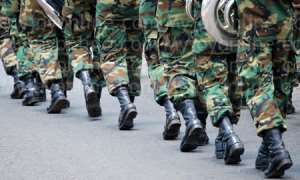
Since the overthrow of Omar Hassan al-Bashir on April 11, the ruling Transitional Military Council (TMC) in Sudan has encountered and foiled a number of coup attempts while at the same time engaging protesters in dialogue processes.
Just at the time Africa expected a steady advancement toward instituting democratic electoral processes, thanks to efforts by the African Union and government of Ethiopia to unite the TMC and Forces of Freedom and Change (FFC), then news came in of yet another coup attempt—leading to arrest and detention of senior army and intelligence officers. This was very unfortunate news and prompted an intrusive question: But who is not happy with the new arrangement for a civilian-military transitional government and why?
Yet before this, several other similar coup attempts had been nipped in the bud with frustrating effects in their infancy stages of planning and plotting.
What is more disturbing, is the revelation by the Sudan National TV, watched via Arab Sat across Africa and the Middle East that the latest coup effort was partly a handiwork of officers from the National Security led by the Joint Chief of Staff, Gen Hashim Abdulmutallab Ahmed and elements of high rank from the country’s intelligence agency, the National Intelligence Service (NIS). In addition to these, the Sudan media indicates participation of leaders of the Islamic Movement and those of the National Congress Party (NCP). All these are though, still a subject of investigation under the Sudan Armed Forces Act—whose outcome would either implicate or absolve them in the courts of law.
Apparently, Gen Mohammed Osman al-Hussein of batch 31 has since replaced Gen Hashim Abdulmuttalib as joint chief of staff.
These coup developments are not only a source of discomfort to the people of Sudan, who in rare unison of late, have condemned the perpetuators but they also generate worries for Sudan neighbors and economic partners like Uganda. For the record, Sudan is number one importer of Ugandan coffee, even though statistics show it coming in second position after the European Union (EU). But the EU is a collection of 28 countries, so going country by country of those sustaining the Ugandan coffee industry, Sudan ranks number one—thus the extent of Ugandan eagerness to see it stabilize soonest. In general terms, if Sudan sinks into a major civil conflict as a result of frustrated coup de ’tats the scope of political and economic ramifications is sure to spill-over in at least six-immediate African neighboring countries of—South Sudan, Central African Republic, Chad, Libya, Egypt and Ethiopia before surging over to other extended economies. That is how central and hurting the Sudan question is to the region and Africa on a continental security context.
By Aisha Majid
Lecturer in Mass Communication Department, Kampala University




 We’ll protect state wealth from opaque deals – Prof Jane Naana
We’ll protect state wealth from opaque deals – Prof Jane Naana
 Mauritania president says running for second term in June polls
Mauritania president says running for second term in June polls
 I won't ever say I was a mere driver’s mate' — Prof. Opoku-Agyemang
I won't ever say I was a mere driver’s mate' — Prof. Opoku-Agyemang
 2024 polls: 'EC struggling to defend credibility'— Prof. Opoku-Agyemang
2024 polls: 'EC struggling to defend credibility'— Prof. Opoku-Agyemang
 Akufo-Addo gov't's 'greed, unbridled arrogance, unrestrained impunity, sheer dis...
Akufo-Addo gov't's 'greed, unbridled arrogance, unrestrained impunity, sheer dis...
 Election 2024: Ghana needs an urgent reset, a leadership that is inspiring – Ma...
Election 2024: Ghana needs an urgent reset, a leadership that is inspiring – Ma...
 Partner NDC to rollout a future of limitless prospects – Prof Jane Naana Opoku-A...
Partner NDC to rollout a future of limitless prospects – Prof Jane Naana Opoku-A...
 NPP will remain in gov’t till Jesus comes — Diana Asamoah
NPP will remain in gov’t till Jesus comes — Diana Asamoah
 Sunyani Technical University demands apology from former SRC president over sex-...
Sunyani Technical University demands apology from former SRC president over sex-...
 'Dumsor' was resolved by Mahama but ‘incompetent' Akufo-Addo has destroyed the g...
'Dumsor' was resolved by Mahama but ‘incompetent' Akufo-Addo has destroyed the g...
